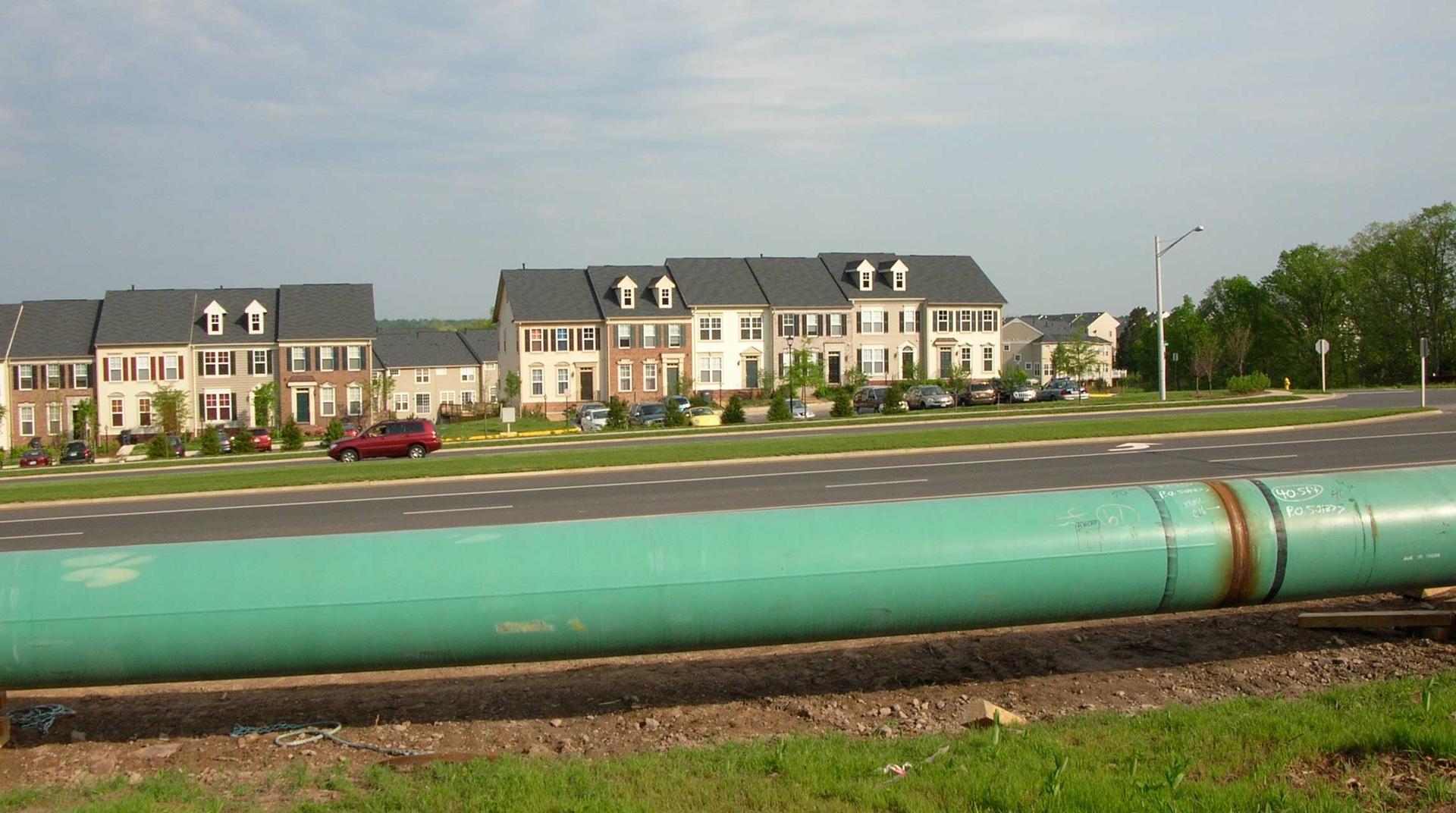Change in climate and energy strategy is a key for the GOP’s road to the White House
A pipeline runs through a neighborhood in Virginia.
Many Republicans question the science of climate change, but some say a presidential candidate who embraces free-market climate solutions could have a winning strategy for the GOP.
Former Rep. Bob Inglis, a Republican from South Carolina, says current low oil prices mean politicians on both sides of the aisle are talking about raising the gasoline tax, which would help the climate and fund highways. The discussion presents the opportunity to revisit party priorities and strategies for addressing climate change.
About 70 percent of Republicans elected officials don't indicate they see a problem with the global climate. That line of thinking became very important to the conservative orthodoxy, said Inglis, who served as in Congres from 1993 to 1999, and then again from 2005 to 2011.
“In the Great Recession it became necessary as a conservative to repeat the lines of ‘climate change was hooey,’” Inglis said.
Inglis believes that mindset will change, and rapidly. For a politician, Inglis said the best strategy will be for candidates to publicly address their own uncertainty on the matter before coming to full acknowledgment of climate change, followed by making proposals for solutions.
It’s vital, he said, if the GOP wants to win the presidency again, to change the Republican message from the previous two election cycles. Polling data tells Inglis that a presidential candidate who disputes the science of climate change will not fare well with young people and independents, who are concerned and are looking for leaders with answers.
“I think there's an incredible breakthrough opportunity for a candidate that wants to lead the Grand Opportunity Party and leave behind the Grumpy Old Party,” Inglis said. “If they embrace the science of climate and say, ‘You know what? Free enterprise has an answer to this.’ And so the question is: who will be bold enough to break out of the pack?”
As the budget process begins to move on Capitol Hill, the Republican majority generally has shown little appetite for new taxes.
But low gasoline prices have recently sparked bipartisan conversations about raising the gas tax to help pay for road maintenance and slow CO2 emissions. Republican proponents include Senate Finance Committee Chairman Orrin Hatch, R-Utah, who has gone on record saying a higher gas tax is “a small price to pay for the finest highway system in the world.”
Inglis says conservatives should support a gas tax increase.
“It's a very important concept for conservatives that there's no such thing as a free lunch,” Inglis said. The attached costs of gasoline consumption aren’t something the American consumer generally sees or is aware of, he said. Such costs include the supply line protection in the Middle East, environmental losses, climate costs and health costs.
“So, you put those kinds of costs on gasoline and you see that it's not the $2 that we're paying right now,” he said.
Rebranding the gasoline tax as a user fee is an idea some Republicans seem to be coming around to.
“It is most certainly a user fee, and it has always been that way,” Inglis said. “It's a whole concept, which is why it makes sense from a conservative perspective, because you're paying for what you take. And the more you use the roads, the more you pay, because the more gasoline you’re putting in your car.”
The uphill battle for alternative fuel has always included the cost for adoption and implementation, as well as subsidies for development. Inglis says revealing the hidden subsidized costs of “incumbent fuels” levels the playing field for the more expensive-appearing “challenger fuels.”
However, revealing the costs of “incumbent fuels” could mean gas at the pump could costs $8 to $10 a gallon.
“But if you make people pay for what they take, they take sparingly and they're careful in the use of that resource. So, it makes sense as a user fee.”
Inglis goes even a step further and favors a carbon tax, a fee on the carbon that people put into the atmosphere. Attaching all the costs to the fuels and eliminating the subsidies makes the most economic sense, he said, and is favored nearly unanimously by both liberal economists and conservative economists.
“In the case of the carbon tax, you really have this very virtuous situation where people then are paying for what they put into the air, and it's no longer free dumping.”
A crucial point for economic conservatives, he said, is that the carbon tax be revenue neutral, meaning there would be a dollar-for-dollar tax cut somewhere else, so there's no growth of government.
This story first aired as an interview on Living on Earth.
